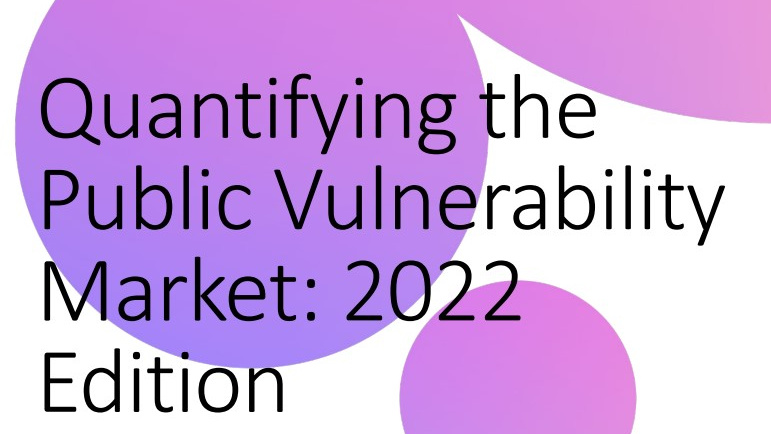GitHub faces lawsuit for role in Capital One leak
Class action complaint accuses the platform of failing to detect and remove hacked data for three months


Development platform GitHub is being sued for allegedly failing to prevent 100 million people's personal information from being disseminated online following the Capital One data breach.
The class action complaint, filed in California, has accused theMicrosoftsubsidiary of negligence after a dump of hacked personal data, including bank account numbers and social security numbers, was hosted on its platform for three months. It's alleged that GitHub didn't remove this "obviously hacked" data in a timely way, nor alert victims their information was posted online.
The Capital One hack, in which the details for approximately 106 million customers were stolen, was disclosed in late July, although the incident itself took place in April. The stolen information, approximately 50GB worth of data, was posted onto GitHub on 21 April, according to the filings, and remained on the platform until mid-July.
GitHub's alleged failings also extend to the enforcement of its own terms-of-service, as it did not revoke the hacker's access to the site, let alone suspend their user account, the claim states.
"GitHub knew or should have known that obviously hacked data had been posted toGitHub.com," the lawsuit claims. "Indeed, GitHub actively encourages (at least) friendly hacking as evidenced by, inter alia, GitHub.com's "Awesome Hacking" page.
"GitHub had an obligation, under California law, to keep off (or to remove from) its site Social Security numbers and other Personal Information."
The claimants' arguments also centre on comparisons with the way similar tech platforms, like Facebook and YouTube, approach content moderation. These sites often dedicate resources and staff to monitoring and removing offensive and illegal content, or content which breaches their term-of-service.
Sign up today and you will receive a free copy of our Future Focus 2025 report - the leading guidance on AI, cybersecurity and other IT challenges as per 700+ senior executives
Because social security numbers are readily identifiable, generally following a nine-digit sequence, GitHub should have, but chose not to, dedicate time and resource into scanning its platform for such information, it has been argued.
Following the beach disclosure, further research by Israeli firm CyberInt revealed a host of other large organisations could have been struck by the same hacker. These businesses include Vodafone and Ford.
"GitHub promptly investigates content, once it's reported to us, and removes anything that violates our Terms of Service," a spokesperson toldIT Pro.
"The file posted on GitHub in this incident did not contain any Social Security numbers, bank account information, or any other reportedly stolen personal information.
"We received a request from Capital One to remove content containing information about the methods used to steal the data, which we took down promptly after receiving their request."

Keumars Afifi-Sabet is a writer and editor that specialises in public sector, cyber security, and cloud computing. He first joined ITPro as a staff writer in April 2018 and eventually became its Features Editor. Although a regular contributor to other tech sites in the past, these days you will find Keumars on LiveScience, where he runs its Technology section.
-
 Former Google engineer convicted after stealing AI, supercomputing secrets
Former Google engineer convicted after stealing AI, supercomputing secretsNews Linwei Ding told Chinese investors he could build a world-class supercomputer
-
 OpenAI sets February retirement date for popular GPT-4o model
OpenAI sets February retirement date for popular GPT-4o modelNews OpenAI has confirmed plans to retire its popular GPT-4o model in February, citing increased uptake of its newer GPT-5 model range.
-
 Foreign states ramp up cyberattacks on EU with AI-driven phishing and DDoS campaigns
Foreign states ramp up cyberattacks on EU with AI-driven phishing and DDoS campaignsNews ENISA warns of hacktivism, especially through DDoS attacks
-
 A new 'top-tier' Chinese espionage group is stealing sensitive data
A new 'top-tier' Chinese espionage group is stealing sensitive datanews Phantom Taurus has been operating for two years and uses custom-built malware to maintain long-term access to critical targets
-
 ‘States don’t do hacking for fun’: NCSC expert urges businesses to follow geopolitics as defensive strategy
‘States don’t do hacking for fun’: NCSC expert urges businesses to follow geopolitics as defensive strategyNews Paul Chichester, director of operations at the UK’s National Cyber Security Centre, urged businesses to keep closer tabs on geopolitical events to gauge potential cyber threats.
-
 Three ways to evolve your security operations
Three ways to evolve your security operationsWhitepaper Why current approaches aren’t working
-
 Beat cyber criminals at their own game
Beat cyber criminals at their own gameWhitepaper A guide to winning the vulnerability race and protection your organization
-
 Quantifying the public vulnerability market: 2022 edition
Quantifying the public vulnerability market: 2022 editionWhitepaper An analysis of vulnerability disclosures, impact severity, and product analysis
-
 Same cyberthreat, different story
Same cyberthreat, different storyWhitepaper How security, risk, and technology asset management teams collaborate to easily manage vulnerabilities
-
 Business value of ServiceNow security operations
Business value of ServiceNow security operationsWhitepaper Experience transformational gains from automating workflows and data-sharing among IT, security, and risk teams to rapidly remediate threats